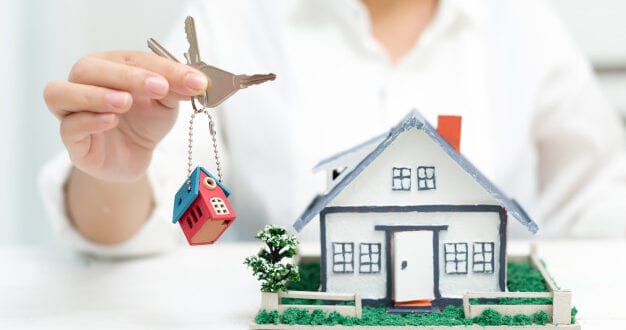Why do most real estate experts recommend working with a realtor? Working with someone who understands the industry minimizes the likelihood of mistakes. Thus, boosting profit margins. Most mistakes cost a lot more to ignore than they would’ve to fix.
If you’re planning to sell something soon, learning how to avoid them should be a top priority. Shawn Buys Houses KC, real estate developer from Kansas City, lost over $10,000 on his first project. It can happen regardless of your experience. Whether you’re a professional or a first-time home seller, take your time to become acclimated to the selling process. That way, once you’ve sold your home, regrets won’t plague your mind. Instead, you’ll be counting up your ROI.
Failing to Adequately Account for Seller’s Closing Costs

Selling a home might not seem like it should cost the homeowner anything. Unfortunately, life isn’t always how we think it ought to be. Prior to selling, make sure you’ve thought of all the potential expenses. These can add up to thousands of dollars. Below, we’ve listed a few of the most common of them.
Potential Expenses to Look Out For:
- Commissions for the Seller’s Agent:
Certain regions tend to pay their agents a lot more, particularly in competitive markets. Regardless, you should anticipate something along the lines of 1-3% of your home’s value. - 1-3% of the Home’s Value in Closing Costs:
On top of those seller’s fees, you’ll need to factor in the closing costs. Otherwise, your balance sheet might not look as great as you’d hoped. On a $300,000 home, these costs might reach upwards of $9,000. - Home Inspections and Repairs:
These costs tend to vary according to a home’s size, meaning larger homes are more expensive. On average, a 1200 sqft home might pay around $200 to $300 for a typical inspection. Any repair costs would depend on what’s needed.
Neglecting to Lavishly Stage Your Home

To stage a home is to dress it up. Or, in other words, you’ll make the place look as though someone was living there. While that may not sound like it’d make a huge impact, results indicate otherwise.
Even some small tables and chairs improve how lived-in a home looks. Most first-time homeowners want to live in a property long-term. So, unless it looks like somewhere they’d imagine living, it’ll be tough to entice them.
According to Dave Ramsey, Most Agents Believe Staging Boosts Final Sale Price by as Much as 10%:
Not all agents agree how much staging impacts the final closing price, but most of them believe it does give it a boost. So, anyone who’d like to make the most on their sale should keep that in mind.
How You List a Home Matters Much More Than You Realize

Listing your home is where you’ve got a chance to show the world how wonderful your property is. Unless you leverage this opportunity, finding a buyer could be more difficult than expected. Photos are the most powerful way to attract attention, drawing the eyes of anyone who sees them.
The better your photos look, the more serious any inquiries will be. So, by spending a little on some more professional-looking photos, your time on the market could be cut drastically short.
Lighting is, perhaps, the easiest way to boost a property’s appeal. Don’t use anything too harsh. Softer lighting tends to feel brighter, relaxing, and serene. Even some simple 100-watt bulbs could do wonders for the place.
Overpricing a Home

Have you thought about how much you’ll set the asking price? When you decide to price a property, where you set the price is like adjusting the faucet on a sink. Low prices open the floodgates, attracting all sorts of buyers. Higher prices slow down the flow of buyers, and the ones who appear tend to be serious.
70% of Realtors Believe Setting Prices Too High Extends a Home’s Time on the Market:
If you’ve listed a house without any success, chances are, the asking price has been set too high. Most realtors have found that lowering the asking price speeds up the process. Negotiating the price up from there often makes up the difference.
Lowering the price of your house is one of the easiest to attract more offers. Anytime you’ve been struggling to get enough of them, try dropping the price by about 1%. That tends to get them flowing in.
Finding the Right Buyers Can Be Everything

Not all buyers are made equally. Did you know most homes take, on average, at least 45 days to close? From the moment someone signs a contract, you’ll still have to wait several weeks before the deal is done. All that time represents a lot of potential for something to go wrong, ending the deal dead in its tracks. Sometimes, working with someone who gave you a lower offer, but is much more qualifies, would be the smartest move. Not all high offers end up working out. Unless you can accept a deal gone wrong, we’d suggest working with whoever seemed the most qualified.
Some Mortgages Require Homes to Pass an Additional Inspection:
Another thing to consider would be which type of mortgage they are using. Some mortgages, such as the USDA 502 Guaranteed Loan, require homes to meet specific criteria. Suppose you were working with someone who was using a USDA loan, and the inspector found something wrong. You’d have to pay for that problem to be addressed. Otherwise, that deal would be lost.
How to Avoid Home-Selling Mistakes

Take your time while selling your house. Your largest assets deserve some respect. Learning how to avoid the most commons mistakes isn’t all that hard. Ask your realtor if anything seems off. Otherwise, no one will know that you need help. Read up on as much about the process as you can. Also, don’t forget to plan for all those closing costs and other fees. By the time your buyer gets their closing disclosure, your game plan ought to be in order.
 Imagup General Magazine 2024
Imagup General Magazine 2024



